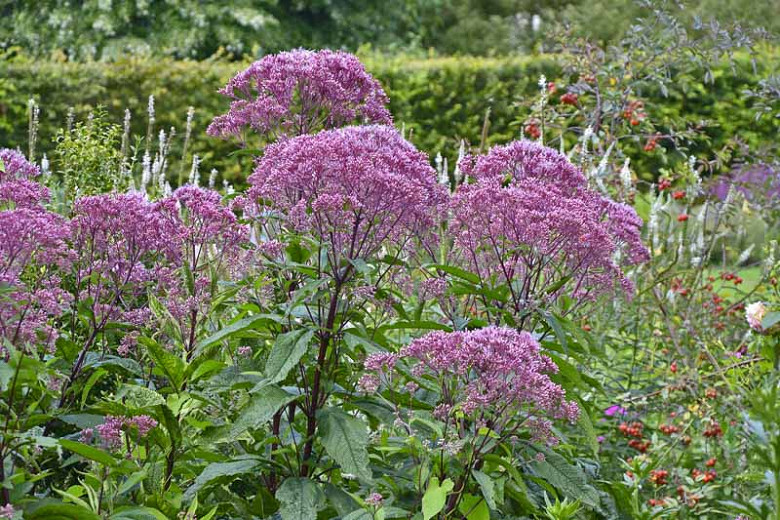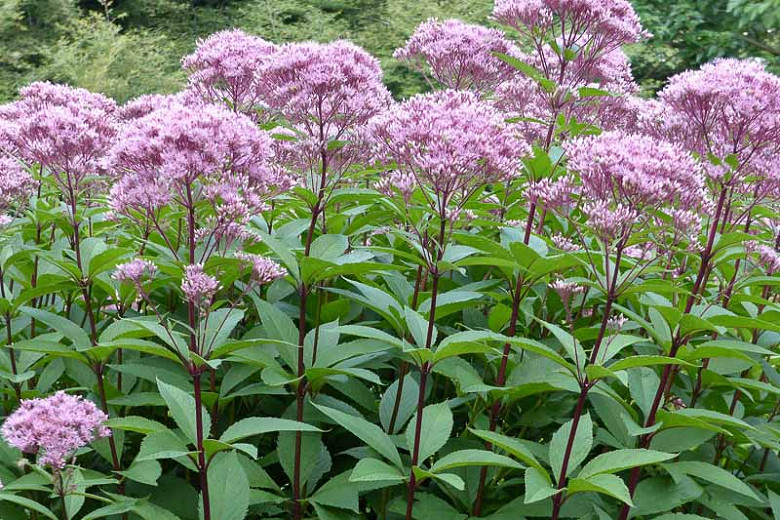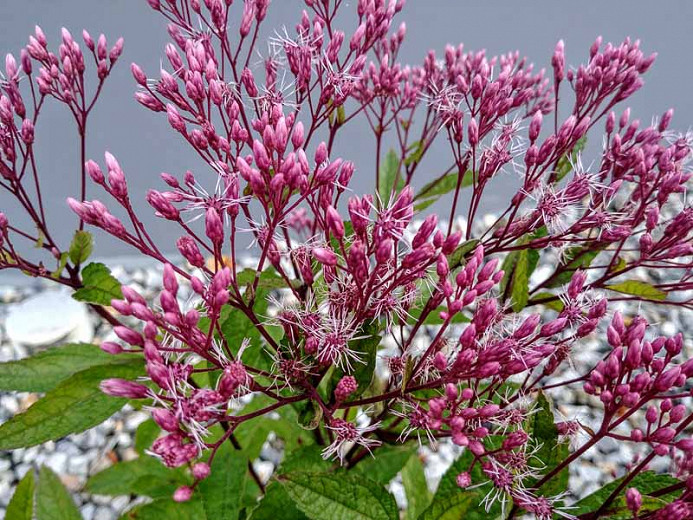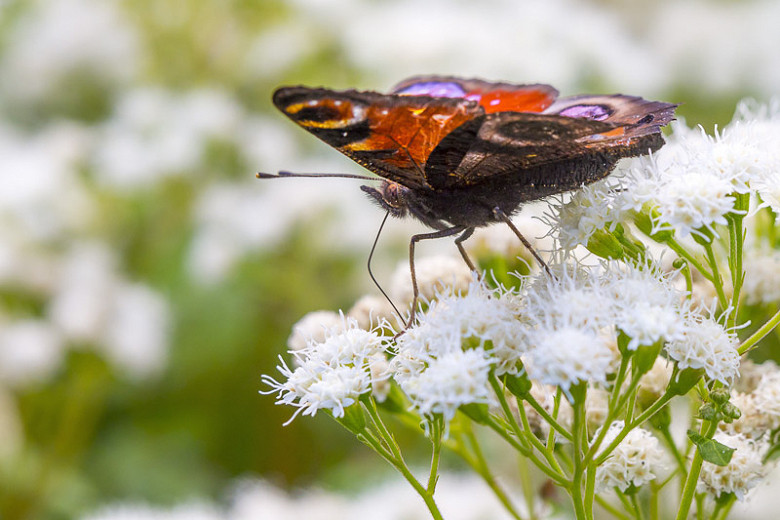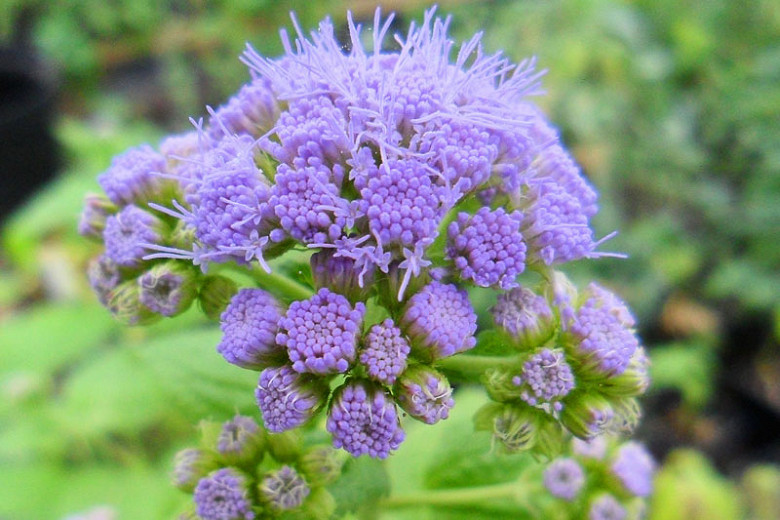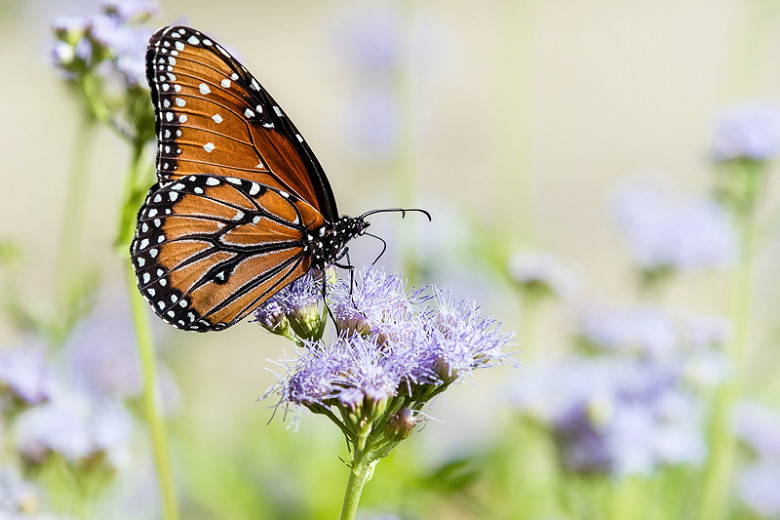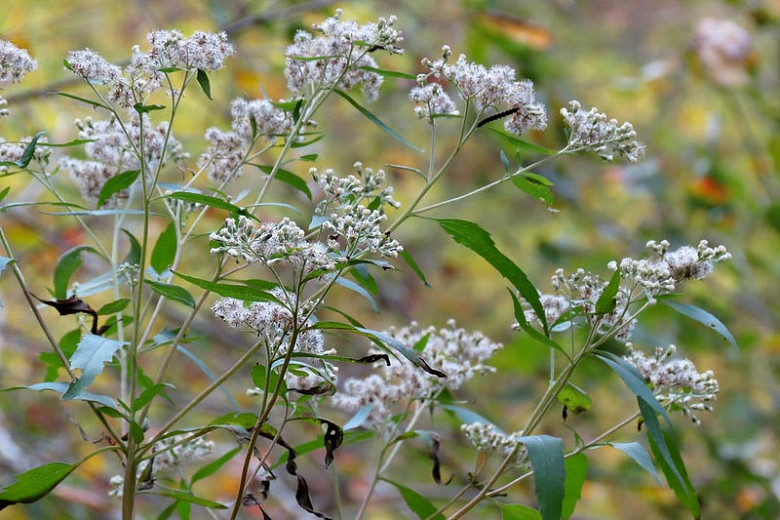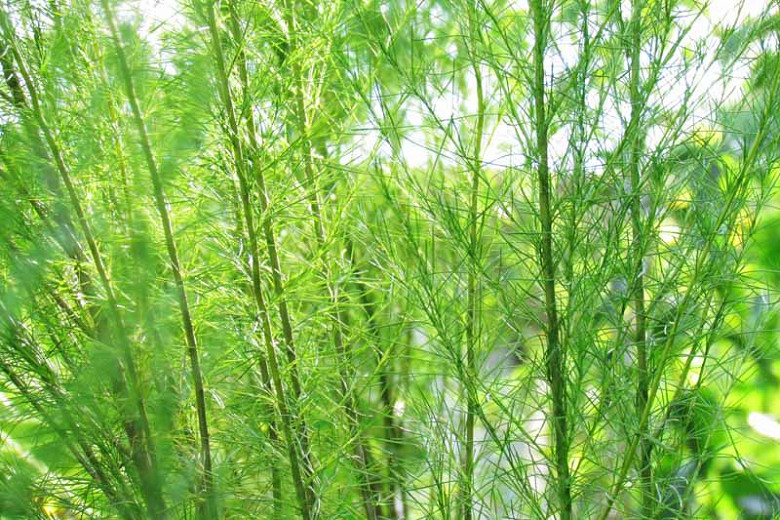Eutrochium dubium (Coastal Plain Joe Pye Weed)
Eutrochium dubium (Coastal Plain Joe Pye Weed) is an upright perennial with purple-spotted, unbranched stems boasting large dome-shaped clusters, 4-7 in. wide (10-17 cm), of small, pale pink to dark purple flowers from mid-summer to early fall. Borne atop erect, strong stems which are hollow, the long-lasting blossoms are attractive to butterflies and pollinators in search of nectar. They give way to attractive, soft buff colored seedheads, which persist well into winter. Ovate, coarsely-toothed, deep green leaves, up to 6 in. long (15 cm), are arranged in whorls along the erect stems. Native primarily to sandy swamps, riverbanks, and moist thickets in Eastern North America, Eutrochium dubium is quite adaptable. It grows easily in a wide range of soils from moist, fertile, and humusy to sandy or gravelly and in full sun to part shade. It provides a wonderful garden presence and late-season flowers at a time when choices may be limited. Use it in the informal setting of a cottage garden or allow it to naturalize in prairies or meadows.
- Grows up to 3-5 ft. tall (90-150 cm) and 2-4 ft. wide (60-120 cm). Will spread in the landscape by self-seeding.
- Performs best in full sun to part shade in fertile, humus-rich, moist soils. Tolerates wet soils, and clay soils. Soils must not be allowed to dry out.
- Very useful and adaptable in the garden, this is an excellent choice for mixed borders, cottage gardens, rain gardens, prairies and meadows, native plant gardens, and naturalized areas.
- No serious insect or disease problems. Deer resistant.
- Cut plants to the ground in late winter.
- Propagate by seed or division.
- Native to Eastern North America.
Requirements
| Hardiness | 3 – 9 |
|---|---|
| Climate Zones | 1, 1A, 1B, 2, 2A, 2B, 3, 3A, 3B, 4, 5, 6, 7, 8, 9, 14, 15, 16, 17 |
| Plant Type | Perennials |
| Plant Family | Eupatorium – Joe-Pye Weeds |
| Exposure | Full Sun, Partial Sun |
| Season of Interest | Summer (Mid,Late)Fall |
| Height | 3' – 5' (90cm – 150cm) |
| Spread | 2' – 4' (60cm – 120cm) |
| Spacing | 48″ (120cm) |
| Water Needs | Average, High |
| Maintenance | Low |
| Soil Type | Chalk, Clay, Loam, Sand |
| Soil pH | Acid, Alkaline, Neutral |
| Soil Drainage | Moist but Well-Drained, Moisture Retentive |
| Characteristics | Fragrant, Showy |
| Native Plants | United States, Northeast, Connecticut, Delaware, Maine, Massachusetts, Maryland, New Hampshire, New Jersey, New York, Pennsylvania, Rhode Island, Southeast, North Carolina, South Carolina, Virginia, West Virginia, Southwest, Nevada |
| Tolerance | Clay Soil, Deer, Wet Soil |
| Attracts | Birds, Butterflies |
| Garden Uses | Beds and Borders, Ponds and Streams, Rain Gardens |
| Garden Styles | Informal and Cottage, Prairie and Meadow |
